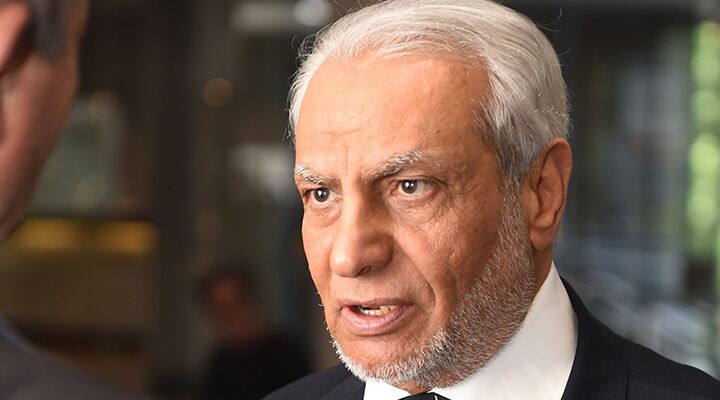
Grand Mufti of Australia Comments on Paris Attacks
Following the bloodbath in Paris, Australia’s Ibrahim Abu Mohammed took to the radio to share his thoughts on the attack. As Australia’s grand mufti, Mohammed had the opportunity to condemn the terrorist attacks in Paris and douse the smoldering immigration crisis in Australia.
Unfortunately, no such response was forthcoming. Instead, the grand mufti heaped coals on the fire.
Mohammed expressed condolences to the families and friends of the victims killed in the suicide bombings and shootings, but then his speech took a turn for the worse.
Instead of unconditionally condemning the attacks, he said that, in a way, these attacks were justified.
He stated, “It is therefore imperative that all causative factors such as racism, Islamophobia, curtailing freedoms through securitization, duplicitous foreign policies, and military intervention must be comprehensively addressed.” Notice: “causative factors.”
So the grand mufti thinks that the French share part of the blame for the attacks. As for his mentioning of Islamophobia and racism, France has the largest Muslim population in Western Europe. In 2014, it was estimated to be around 6.13 million. That is nearly 10 percent of the French population. Islam is the second-most widely practiced religion in the country after Roman Catholicism.
More troubling is the idea that the grand mufti is probably not ignorant of this fact. He is likely not talking to French Muslims, but to Australia’s Muslim community.
Australia has approximately 480,000 practicing Muslims. While the Islamic presence is steadily growing and minarets are beginning to protrude from the city skylines, there is still a deep distrust of the religion. White Australians in particular often receive the branding as racists who suffer from Islamophobia.
The immigration crisis, simmering for years, hasn’t been helped by recent attacks. In the last year, Australia has experienced three serious Islamic attacks and many other attempted attacks.
Stabbings in Melbourne took place directly after the Islamic State told Muslims to carry out indiscriminate attacks on Australians. Most infamous was December’s hostage situation at the Lindt Chocolate Café in Sydney. The 17-hour battle led to the death of two hostages and the Iranian-born cleric Man Haron Monis, who began the siege.
Stirring up further strife has been the pressure coming from Australia’s ally, the United States. With U.S. President Barack Obama so proactive in his support of mass immigration, the controversial issue has continued to rise in Australia. Many Australians don’t look favorably on accepting large numbers of immigrants. After all, many of those who have carried out attacks in the land down under have come from abroad. The loose screening process has Australians worried.
Those who voice such concern are called Islamophobics and racists by the grand mufti. Judging him by his own words concerning the Paris attacks, such people bring terrorist attacks on themselves!
That is what makes his statements so dangerous. What about those radical Muslims who do live in Australia? What are they to think now? If anything, the grand mufti’s statements increase the likelihood of copy-cat attacks in Australia.
No doubt the Australian government was hoping for a unanimous outcry from all Australia’s Muslim leaders denouncing the Islamic State. But the one voice that could really sway the minds of Muslims in Australia—that of the grand mufti—was the one voice that gave a differing opinion.
Australian Sen. Cory Bernardi regarded Mohammed’s comments as a direct attack on the West and a “disgrace.” Many more are calling for his removal or resignation. But more attention should be invested in what he said as opposed to the man himself. The grand mufti represents the Muslim community. He embodies it. His statements show the dangerous undercurrent in the Muslim community. If the grand mufti can make comments as he did, what are the radicals saying in the mosques or the privacy of their own homes? Do more in Australia have the same opinion? If the grand mufti believes the West’s actions partially caused the terrorist attacks and says so openly, how long can it be before another Western nation falls victim to these same terrorist attacks?
The Trumpet has already produced a number of articles and Trumpet Daily Radio Show programs on how the Paris attacks are a catalyst for anti-immigration and more race-related confrontation. Keep watching. This one massacre in Paris is already stirring up confrontation on the other side of the world. We must all sit up and pay attention, because what is happening in Europe today is going to affect the whole world—both Muslims and non-Muslims—tomorrow.
